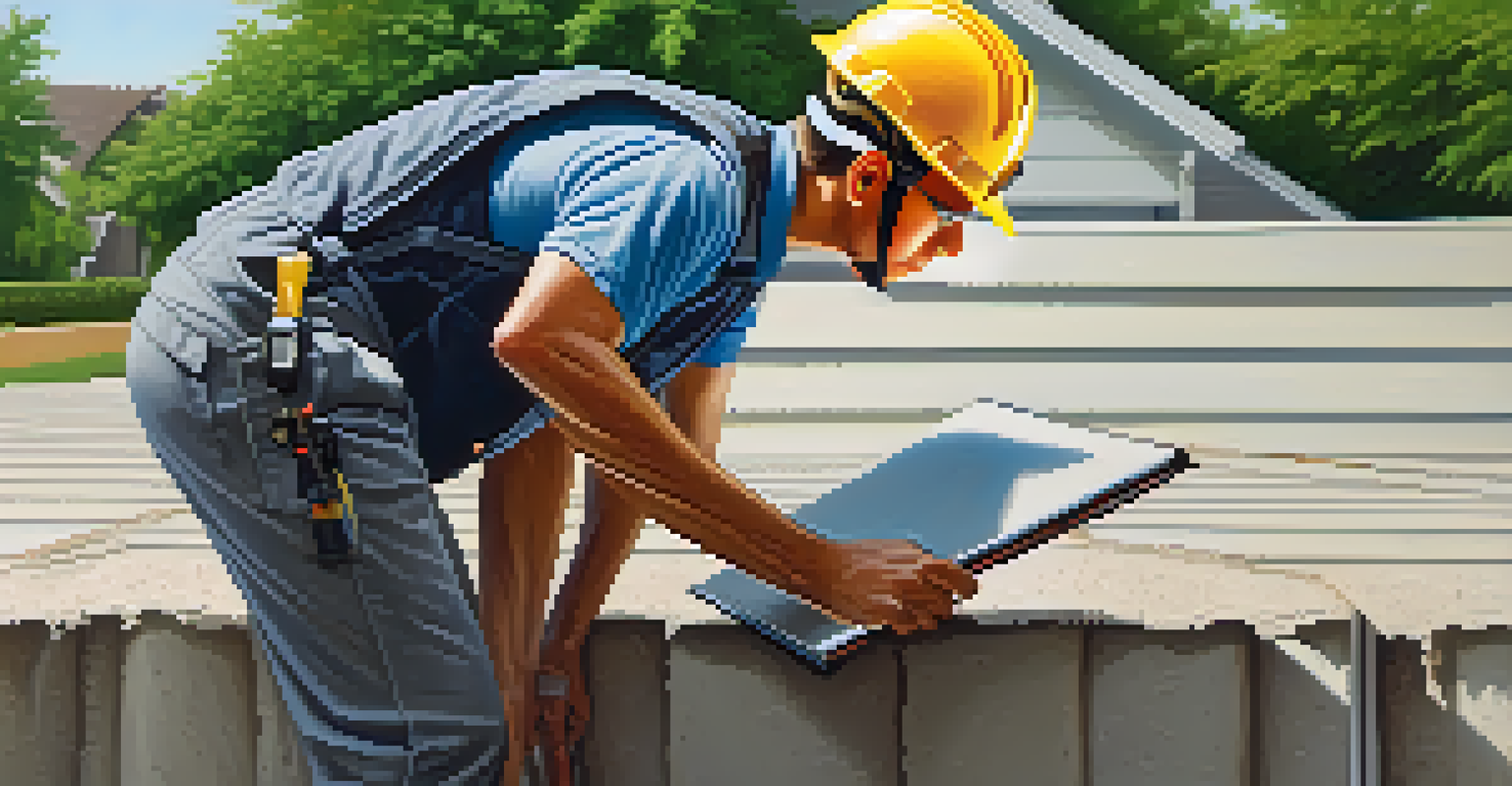Home Inspection vs. Appraisal: Key Differences

What is a Home Inspection?
A home inspection is a thorough examination of a property's condition, typically conducted by a qualified inspector. This process involves checking major systems like plumbing, electrical, and HVAC, as well as assessing the home's structure and safety features. The goal is to identify any potential issues that could affect the value or livability of the home before a sale is finalized.
The bitterness of poor quality remains long after the sweetness of low price is forgotten.
During an inspection, the inspector will provide a detailed report outlining their findings, which can include anything from minor repairs to major concerns like mold or foundational issues. This information empowers buyers to make informed decisions about their purchase, potentially negotiating repairs or adjustments to the sale price. Think of it as a health check-up for your future home!
In essence, a home inspection helps safeguard your investment by uncovering hidden problems that may not be visible during a casual visit. It's a crucial step in the home-buying process, ensuring that you know exactly what you're getting into before you commit.
What is a Home Appraisal?
A home appraisal, on the other hand, is an objective evaluation of a property's market value, typically conducted by a licensed appraiser. This process is often required by lenders to ensure that the home's value is sufficient to back the mortgage they are offering. The appraiser considers various factors including the home's size, location, condition, and comparable sales in the area.

Unlike a home inspection, which focuses on the condition of the property, an appraisal is primarily concerned with its market worth. The appraiser will create a report that includes an estimated value, which can directly influence the loan amount a buyer is eligible for. It’s like having a financial expert assess whether you’re paying a fair price for your investment.
Home Inspections Reveal Property Issues
A home inspection uncovers potential problems that could affect the livability and value of a property.
Essentially, while both processes are crucial in real estate transactions, they serve different purposes. An appraisal provides a benchmark for the financial side of the deal, ensuring that the buyer and lender are making sound financial decisions.
Key Differences Between Home Inspection and Appraisal
The primary difference between a home inspection and an appraisal lies in their objectives. A home inspection is focused on revealing the physical condition of the home, while an appraisal is concerned with determining its market value. This distinction is essential for buyers to understand, as it affects their purchase decisions and financing options.
An investment in knowledge pays the best interest.
Another key difference is who performs these evaluations. Home inspections are conducted by trained inspectors who specialize in assessing the home's condition, whereas appraisals are performed by licensed appraisers trained in real estate valuation. Each professional plays a unique role in the home-buying process, contributing valuable insights from different perspectives.
Finally, the outcomes of these processes can influence the home-buying journey in different ways. An unfavorable inspection report might lead buyers to reconsider their offer, while a low appraisal could impact the financing terms. Understanding these differences helps buyers navigate the complexities of home buying with confidence.
When Do You Need a Home Inspection?
Typically, a home inspection is conducted once a buyer has a property under contract, before the sale is finalized. This timing allows buyers to uncover any potential issues that could affect their decision to proceed. It's an essential step for those purchasing a resale home, as it provides an opportunity to identify necessary repairs.
Even in new construction, a home inspection can be beneficial. While new homes are generally in better condition, construction oversights can occur, and a thorough inspection can catch these before they become larger issues. Buyers should consider it an essential practice, regardless of the property's age.
Appraisals Determine Market Value
A home appraisal assesses a property's market value, ensuring the loan amount aligns with its worth.
In short, scheduling a home inspection is a proactive measure that empowers buyers to make informed decisions and protect their investment. It’s a step you won’t want to skip, as it can reveal critical insights about your future home.
When Do You Need a Home Appraisal?
A home appraisal is typically required by lenders when a buyer applies for a mortgage. This process helps ensure that the lender is not offering a loan amount that exceeds the property's market value. Without a satisfactory appraisal, financing may be delayed or denied, making it a crucial step in the home-buying process.
Appraisals can also be necessary in other scenarios, such as refinancing an existing mortgage or determining property value for estate planning. In these cases, a current appraisal can provide an updated perspective on the property’s worth, which can impact financial decisions.
Ultimately, understanding when an appraisal is needed can help buyers navigate the financing process smoothly. It ensures that all parties involved are on the same page regarding the property's value, reducing potential complications down the line.
Cost Considerations: Inspection vs. Appraisal
Both home inspections and appraisals come with their own costs, and understanding these can help buyers budget effectively. A typical home inspection can range from $300 to $500, depending on factors such as location and the size of the home. This upfront investment can save buyers from costly repairs later on.
In contrast, home appraisals usually cost between $300 and $700, varying based on the property's complexity and location. While this fee may seem significant, remember that it is a crucial part of securing financing and ensuring that you are making a sound investment.
Both Processes Are Essential
Home inspections and appraisals together provide a comprehensive understanding of a property, guiding confident purchasing decisions.
By planning for these costs early in the home-buying process, buyers can avoid surprises and better prepare for their financial commitments. Both inspections and appraisals are essential investments that can ultimately lead to a more secure purchase.
The Importance of Both Processes
While home inspections and appraisals serve different purposes, both are essential in the home-buying process. Inspections help identify any issues that could affect the livability of the home, while appraisals ensure that the buyer and lender agree on the property's value. Together, they provide a comprehensive overview of what buyers can expect.
By conducting both an inspection and an appraisal, buyers can make informed decisions that align their financial and personal goals. This dual approach minimizes the risk of unpleasant surprises and helps buyers feel more confident in their investment.

Ultimately, understanding the key differences between these processes empowers buyers to navigate the home-buying experience with clarity and confidence. It’s about arming yourself with knowledge so that you can make the best choices for your future.